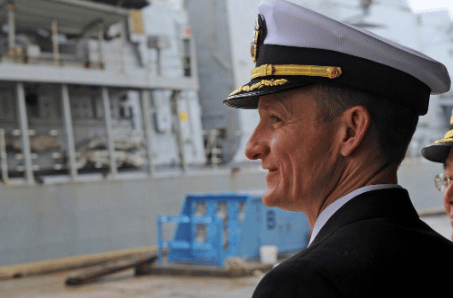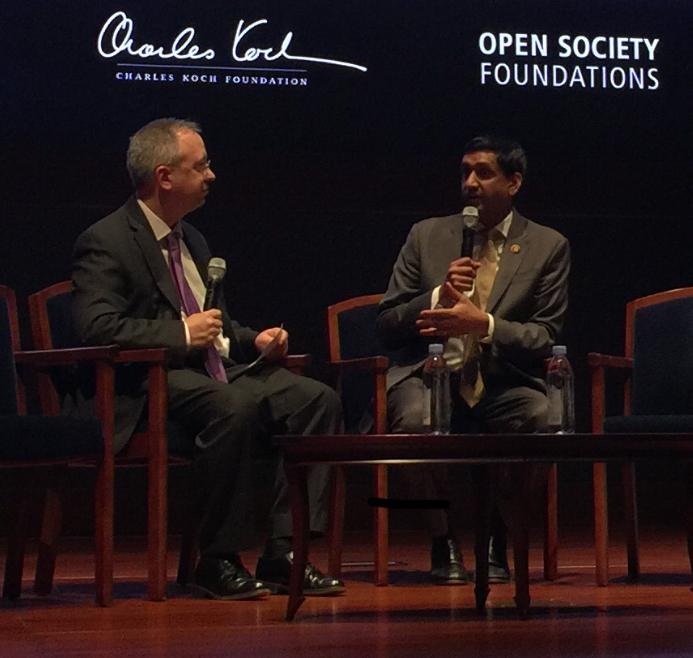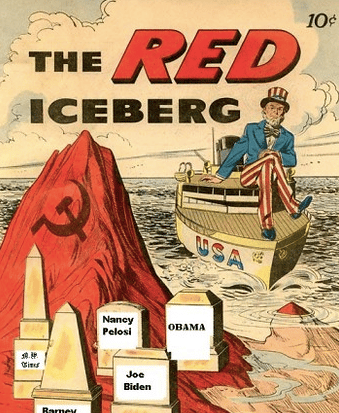Once again, the whispers of phantoms masquerading as administration officials have attempted to put Donald Trump on the defensive only two months before the fall election. And in typical fashion, the roused president has gone on an immediate rhetorical offensive. Trump has doubled down on his affirmations towards the U.S. military and the American soldier, while simultaneously confronting the class of generals who command them. “I’m not saying the military’s in love with me—the soldiers are,” Trump said at a Labor Day press conference. “The top people in the Pentagon probably aren’t because...

What Bernie Goetz Can Teach Us About Vigilante Violence
How many times can something be divided before it permanently breaks? In a matter of months, the edifice of a United States has become more and more cracked, after repeated blows from a pandemic virus, state-imposed lockdowns, mass unemployment, police shootings, and subsequent riots. The national mood is one of exhaustion and frustration, if not outright anger. On August 25, Americans were given another thing to divide themselves over. In response to yet another contested police shooting, riots erupted in the city of Kenosha, Wisconsin. During the ensuing chaos, video was taken of an...

Imagining a Memorial for the Veterans of the Global War on Terror
Memorials are intrinsically meant to be a community fixture. There is a reason they are placed in the public square, made the focal points of parks and included alongside bustling streets instead of being kept away for private eyes or individual observance. Memorials are a collective means of commemorating and honoring past events, leaders, and sacrifices. This utility of unity has been contradicted in the past decade as monuments from the previous century have aroused a maelstrom of controversy and sometimes vandalism. The primary examples are monuments to the Italian explorer Christopher...

Finding Accountability for Captain Crozier
There is a sickness in the United States Navy, and it goes beyond the coronavirus pandemic. It’s a disorder of irresponsible political leadership, and a high command more focused on expediency than maintaining the confidence of the sailors in their care. The latest symptom of this disease was the abrupt dismissal of Captain Brett Crozier, formerly of the USS Theodore Roosevelt. When members of his crew became infected with COVID-19, Crozier sent a four-page memo explaining his disagreements with current containment strategy and recommending a more aggressive plan of action. The memo, which...

No Bailouts
That adroit member of the British Parliament Enoch Powell once said that “the supreme function of statesmanship is to provide against preventable evils.” This duty, incumbent upon politicians endowed with wisdom, is made difficult because “by the very order of things such evils are not demonstrable until they have occurred.” Well, the market crash has finally occurred, and laid bare the “evils” of America’s monetary policy. This month saw the worst stock market crash in nearly forty years. The next month will see hundreds of thousands, if not millions, marching into unemployment. Whole...

The Quincy Institute: Off to a Decent Start
Non-interventionists are not used to having a seat at the power table. Lacking any amount of institutional influence, believers in the anti-war cause are used to spending careers tinkering at the margins of the conversation, living from hand to mouth off of minimal fundraising. No one ever got rich towing the line for “Big Peace.” This unfortunate situation has, over decades, left a cynicism for anything located in the beltway of Washington D.C. That’s where principles go to die, and good people go to sell out, don’t you know? This characterization is far from unfounded. There is an...

Opportunities for Cooperation With Russia
On matters of global security, the most important relationship in the world is between the United States and Russia. Mutual respect and cooperation between them are necessary for de-escalating tensions in Eastern Europe, restoring equanimity to the Middle East, counterbalancing growing power in Asia, and instituting strategic arms control agreements on nuclear weapons. Unfortunately, these critical issues have been sidelined in favor of distrust and hostility. From America’s revolution to Russia’s revolution, the two nations enjoyed amicable relations with no contravening interests. The...
Dangerous Foreign Policy at the National Conservatism Conference
A person would be hard-pressed to find a day in the Washington D.C. calendar where there isn’t some kind of conference. They’re typically small affairs with free lunches, and more useful at hitting a think tank’s spending quota than influencing policy. As a libertarian Republican, my attention was grabbed by the prospect of a “national conservatism conference” in the most international (read: imperial) of capitals. With keynote speakers like Tucker Carlson, John Bolton, and others, the three-day event at least promised to be interesting. After attending earlier this week, my reaction changed...









